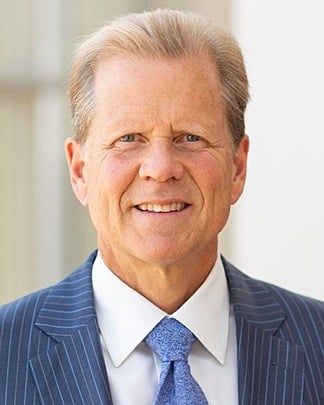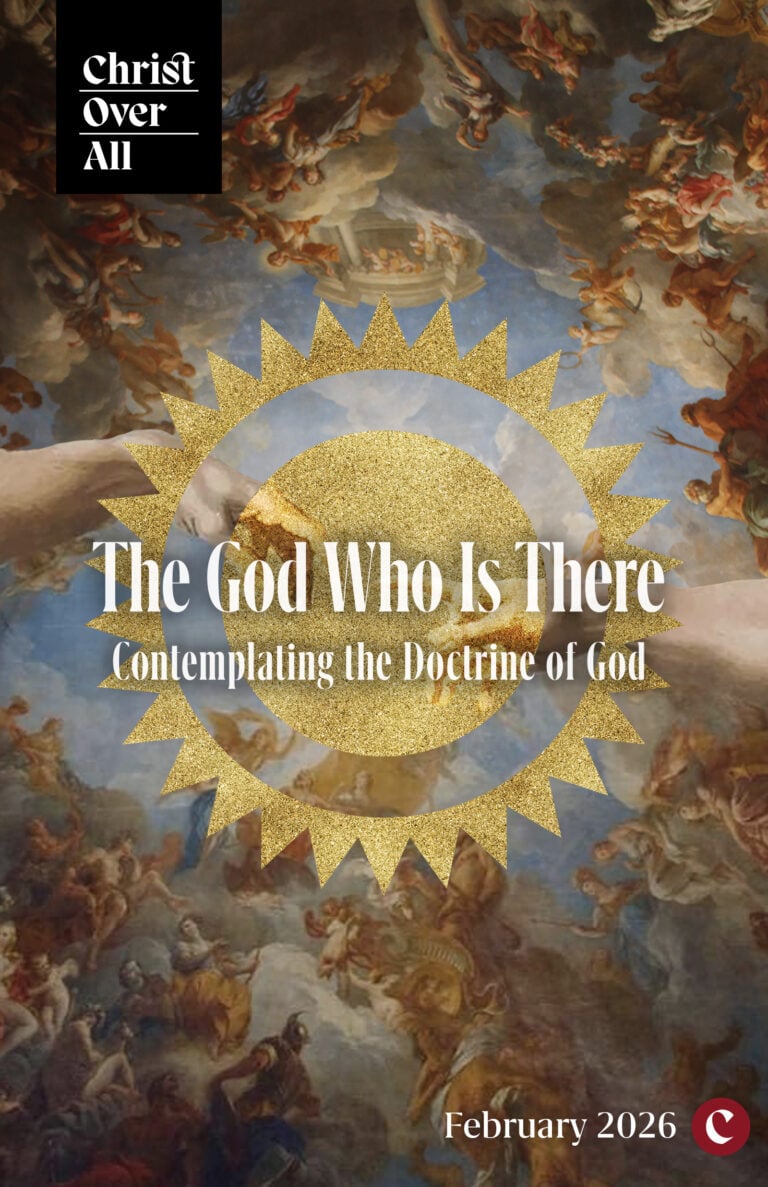Christianity and Marxism are not merely alternative theories about economics and governance; they are rival religions, resting on mutually exclusive claims about metaphysics, morality, and eschatology. One begins with “In the beginning, God . . .”; the other with “In the beginning, there was nothing . . .”. One exalts the triune Creator as the source of authority and blessing; the other enthrones an atheistic State as the final arbiter of law, conscience, and property. From this starting point, the paths quickly diverge until they arrive at entirely opposite destinations: the new heavens and new earth versus the gulag, freedom in Christ versus enslavement to the State, eternal life versus the hundred-plus-million graves Marxism continues to fill. To demonstrate the incompatibility, let’s look at each position by beginning with the question, “What does Scripture say?” We will find that the answers biblical Christianity gives to us are the antithesis of the answers furnished by Marxism.
Theological Foundations: The Sovereignty of God versus the Divinized State.
The Christian confession is succinct: “The earth is the Lord’s and the fullness thereof, the world and those who dwell therein” (Ps. 24:1). Because creation belongs to God, every earthly ruler—from a small town mayor to the President of the United States—operates on delegated authority. Kings are warned (Ps. 2:10–12) and magistrates instructed (Rom. 13:4) that they “bear the sword” not autonomously but as ministers accountable to the Judge of all the earth. Property itself is not man’s to redistribute at will, but His to steward faithfully and pass on as blessing. Marxism begins with presuppositional atheism: “Communism begins where atheism begins,” according to Marx. The God of Scripture must be declared non-existent so that the omnicompetent State can step into the void. When “religion is the opium of the people,” the State necessarily becomes the deity who supplies earthly salvation by seizing, allocating, and forbidding. By design, not by accident, Marxist regimes outlaw churches or hollow them out into departments of propaganda. The State thus claims the right to decide how many children may be born, where citizens may live, or even how much grain a farmer may keep for his own family. This is idolatry in its purest form.
Human Nature: Imago Dei versus Materialist Cogs
Genesis teaches that man is created in the image of God (Gen. 1:27). This single sentence anchors human dignity, moral agency, and accountability. Sin has marred but not erased that image. Even after the fall, labor is redemptive; the electrician and the professor both glorify God by exercising dominion (Gen. 1:28, 1 Cor. 10:31). A baker who invents a better loaf, a mother who cares for and loves her children with patience, or an entrepreneur who builds a cybersecurity firm are all answering a divine call. Marxism reduces man to a bundle of economic functions determined by his class. Your worth equals your productive capacity as measured by abstract labor hours. The “New Man” in Marxist theory is not transformed by grace, but reconstructed by sociology: re-education camps, struggle sessions, and terror to produce collective homogeneity. In Cambodia’s killing fields, the ideologues literally murdered anyone who wore glasses, on the logic that literacy marked out a bourgeois trait to be surgically excised from the social body. Image-bearers become replaceable numbers on an Excel spreadsheet; individuality is not honored or respected but destroyed.
Property: Stewardship versus Confiscation
Scripture protects private ownership at every turn. The eighth and tenth commandments forbid both theft and coveting, presupposing legitimate possession (Exod. 20:15, 17). From Abraham’s purchase of Machpelah (Genesis 23) to Naboth’s refusal to sell his vineyard (1 Kings 21), the Bible treats ownership as a sphere of authority entrusted by God and protected in civil law. Paul condemns thieves with the simple command: “Let the thief no longer steal, but rather let him labor, doing honest work with his own hands” (Eph. 4:28). The remedy for envy is repentance, hard work, and generosity—not confiscation. Marx’s Communist Manifesto openly calls for the “abolition of private property.” Every historical attempt has produced the same consequence—first chaos, then tyranny. Once ownership is vested in “the people,” this quickly becomes “the Party,” and the individual family is severed from its means of production and sustenance. When Stalin’s forced collectivization confiscated Ukrainian grain to feed the cities of the USSR, the ensuing Holodomor Famine of 1932–33 starved up to four million people. Venezuela’s twenty-first-century repeat of the experiment has turned the country with the world’s largest proven oil reserves into a landscape where citizens are left to hunt small game for their supper. The lesson is clear, and history teaches us the truth: “A man without self-control
is like a city broken into and left without walls” (Prov. 25:28); a society without protected property is likewise defenseless against the tyrant.
Work and Productivity: Dominion versus Coercion
Before sin entered the world, God placed Adam in a garden and commanded him to “work it and keep it” (Gen. 2:15). Work is pre-fall, and therefore good; only hard toil and weeds enter after rebellion. Jesus Himself spent roughly ninety percent of His earthly years as a carpenter, honoring the calling to make useful things. The New Testament warns that “If anyone is not willing to work, let him not eat” (2 Thess. 3:10), a principle that presupposes freedom to accept or refuse particular employment. Marxist economies, lacking price signals and profit motive, substitute production quotas assigned by distant bureaucrats who don’t know their right hand from their left. Initiative is criminalized as “speculation” or “hoarding.” The result is chronic shortages, shoddy goods, and environmental disaster. When it comes to stewarding God’s created world, the filthiest and most abusive countries in the world are Marxist and socialist. When labor becomes merely coerced extraction, productivity collapses, proving that God’s dominion mandate and liberty go hand in hand.
Economic Goals: Flourishing versus Enforced Equality
Scripture recognizes inequality as an inescapable feature of a world with varied gifts, times, and seasons. The farmer who sows thirtyfold and the one who reaps a hundredfold are both honest; the difference comes from soil, weather, and providence. God’s command is not to erase the gap, but to ensure that generosity flows throughout the economy: “If among you, one of your brothers should become poor. . . you shall open your hand to him and lend him sufficient for his need” (Deut. 15:7–8). The biblical safety net is voluntary, relational, moral—not bureaucratic, politicized, or enforced by threats from the State. Marxism promises equality of outcome, but to achieve it, it must destroy every incentive to excel. When reward is identical regardless of effort, the diligent lose their work ethic, and the sluggard turns on his bed. The economic pie then shrinks so dramatically that everyone, except the ruling elite, is reduced to poverty and subsistence. Biblical teaching on inequality points the believer toward grateful generosity and Christ-centered contentment; Marxism points him toward resentment, class hatred, and perpetual revolution.
Moral and Social Outcomes: Virtue versus Bloodshed
Market institutions reinforce biblical virtue precisely because honesty and excellence earn repeat customers. A businessman who inflates prices loses business to a competitor; a craftsman who cheats on the quality of materials will destroy his reputation. Private wealth, when earned morally, funds hospitals, schools, pregnancy-care centers, orphanages, and missionary service without coercion. By contrast, socialist central planners replace voluntary charity with confiscatory taxation, leaving citizens spiritually and materially dependent. When government becomes the sole provider, it frequently becomes the executioner as well. From Stalin’s purges to Mao’s Cultural Revolution, the twentieth century tallied at least one hundred million dead. That is not an accident; it is the logical fruit of an ideology that denies the triune God, treats citizens as merely economic agents, and grants absolute power to corrupt bureaucrats.
Civil Authority: Servant versus Sovereign
Paul defines the task of magistrates narrowly: punish evil-doers, praise those who do good (1 Pet. 2:14), and provide peace in society so that we Christians “peaceful and quiet life, godly and dignified in every way” (1 Tim. 2:2). Scripture nowhere entrusts the state with redistributing the economic production, deciding the level of wages, setting interest rates, inventing hate speech laws or regulating every square inch of the economy. Ancient Israel itself had no centralized planning board, and the tithe supporting the Levites and the poor was a fixed percentage for everyone, not a progressive tax. Marxist regimes invert the order: civil government metastasizes into a type of monster Leviathan, extending its tentacles into family life, education, health care, agriculture, and every area of the economy— the State even tries to regulate the thoughts of its citizens. A farmer who hides grain to feed his children becomes a “class enemy.” An author whose writings offend the Communist Party finds himself murdered or exiled to the gulags (like Aleksandr Solzhenitsyn). Total state control is not a regrettable deviation from Marxism; it is the consistent and logical outworking of the ideology. And when the state claims divine prerogatives, it inevitably persecutes those who affirm an allegiance higher than itself. The most threatening words to the Marxist are “Jesus is Lord, not Caesar.”
Conclusion: No Synthesis
The Apostle Paul warns, “For what partnership has righteousness with lawlessness” (2 Cor. 6:14). Attempts to construct a “Christian Marxism” inevitably attack Christ and his word and take one in the opposite direction from biblical revelation and Christian truth. Where biblical truth has shaped nations—whether Old Testament Israel’s jubilee laws or the work ethic spawned by the Protestant Reformation, the result was Western prosperity—human beings flourished materially and spiritually. Where Marxist dogma has reigned—whether Soviet collective farms or present-day Venezuela and North Korea—death, poverty, and tyranny have followed like night follows day. Christianity provides not only the right diagnosis but the right solution: repentance and forgiveness of sins, renewal of hearts by the work of the Holy Spirit, and responsible stewardship that, under the blessing of God, yields “pressed down, shaken together, running over” innovation and generosity (Luke 6:38). By contrast, Marxism offers only the perpetual revolution of envy culminating in a graveyard of “equality” and total tyranny.
Believers, therefore, must refuse the false gospel of a collectivist utopia, preach the true gospel of sovereign grace, and labor faithfully in homes, churches, and markets as trustworthy stewards. We know that our true citizenship is in heaven—“and from it we await a Savior, the Lord Jesus Christ, who will transform our lowly body to be like his glorious body, by the power that enables him even to subject all things to himself” (Phil. 3:20–21).

